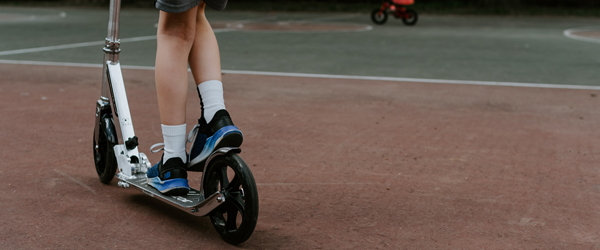
Electric scooters (often called “e-scooters”) are a relatively new resource promoted by sharing companies, like Bird Rides, Inc., that are found in major cities like San Francisco and the greater Bay Area. There was almost immediate backlash for the distribution methodologies of these companies by pedestrian and disability advocates with concern for safety. Now, a few years into the use of e-scooters as a shared resource for transportation, studies are finding personal injury cases related to e-scooters are on the rise.
Bird Rides, Inc. conducted their own research and have been promoting e-scooters as equally as-safe-as or safer-than riding a bicycle, but these “key findings” are related to internal (“secret”) data and “independent research.” However, there is published research evidencing the rate of injury for e-scooters may be higher than that of personal vehicles and motorcycles with particularly heavy incidences of head and limb injuries. Injuries from e-scooters treated in emergency rooms throughout the U.S. nearly doubled between 2018 and 2019.* In California, helmet use is only required for riders under the age of 18, but while other vehicle laws remain in place inclusive of e-scooters, personal injuries result from a multitude of factors including failure to obey the traffic laws, alcohol, and rider inexperience.
There has been a string of class action personal injury lawsuits nationwide against e-scooter sharing companies and e-scooter companies are calling for safer streets, but better roadway infrastructure as a way to lessen scooter-related injuries does not follow the emerging research on e-scooter injuries. A limited study conducted by Austin Public Health in 2018 revealed only 10% of riders who were injured sustained injuries in a collision with a motor vehicle vs. 37% of injured e-scooter riders reporting excessive e-scooter speed contributed to their injuries. And despite legislation already being in place and continuing to remain in place prohibiting the use of e-scooters on sidewalks, riders still ride e-scooters on sidewalks, putting pedestrians at risk of injury, too.
The rental agreement from Bird to use an e-scooter is 261 cell phone screens long and incudes a waiver of a (constitutional right to a) jury trial in favor of binding arbitration and a provision to protect the company (and any Municipality contracted to provide the services) from all claims of negligence. The rider is riding at their own risk, but the chances of them reading through the 18,404-word agreement are small. This creates a consumer hurdle to suing Bird for a personal injury.
As personal injury attorneys in San Francisco, we advocate for bicyclist and pedestrian safety as personal injury attorneys. In San Francisco and other California cities, e-scooters are appearing to be adopted as a way to shift away from gas-powered vehicles, which is beneficial, but there is a complete disregard for the safety of users of these e-scooters. If you or a loved one has been injured in an e-scooter collision, contact us today for a free consultation.
* JAMA Network Open, Estimated Incidence of Electric Scooter Injuries in the US From 2014 to 2019, Kevin Xavier Farley, Matthew Aizpuru, MD, Jacob M. Wilson, MD. (August 2020)
